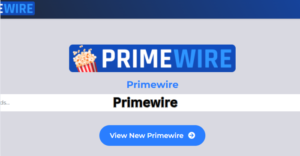8663359404 – Discover How Now!

In today’s digital age, phone numbers associated with unwanted calls and scams have become a significant nuisance. One such number that has increasingly drawn the ire of many is 866-335-9404.
This detailed guide delves into the world of 8663359404, providing essential insights into its nature, the strategies used by those behind it, and how to protect yourself from its intrusive calls.
Introduction to 8663359404:
The number 866-335-9404 has gained notoriety as a frequent source of unwanted calls. These calls are typically associated with robocalls, which are automated phone calls made by a computerized system. Often, these calls aim to deceive recipients into providing personal information or making payments under false pretenses. Understanding the nature of this number is crucial in managing and mitigating its impact.
Why 866-335-9404 is a Concern?
1. The Rise Of Robocalls:
Robocalls have surged in recent years, largely due to advancements in technology that allow scammers to automate the calling process. 866-335-9404 is just one of many numbers used by scammers to reach potential victims. The calls from this number often feature pre-recorded messages or attempts to connect the recipient with live representatives who may use high-pressure tactics.
2. Impact On Consumers:
The constant bombardment of calls from numbers like 866-335-9404 can lead to significant stress and anxiety. Many people find themselves spending valuable time dealing with these calls, which can disrupt daily life and lead to frustration. Additionally, there is a risk of falling victim to scams, which can result in financial loss or identity theft 8663359404.
The Tactics Behind 8663359404:
1. Common Robocall Strategies:
- Pre-recorded Messages: These calls often feature automated messages that attempt to create a sense of urgency or importance 8663359404.
- Caller ID Spoofing: Scammers may manipulate the caller ID information to make the call appear more legitimate or to mask the true origin of the call 8663359404.
- Pressure Tactics: Live representatives may use high-pressure tactics to convince recipients to provide personal information or make immediate payments 8663359404.
2. Examples Of Scams:
- Debt Collection Scams: Callers may claim to be from a debt collection agency and pressure recipients to make payments on non-existent debts 8663359404.
- Prize or Sweepstakes Scams: Recipients are told they’ve won a prize but must provide personal information or pay a fee to claim it 8663359404.
- Tech Support Scams: Callers pretend to be from a tech support company, claiming that the recipient’s computer has a virus that needs immediate attention 8663359404.
How to Identify Robocalls from 866-335-9404?
1. Recognizing Red Flags:
- Unsolicited Calls: Be cautious of any unsolicited calls from unfamiliar numbers, especially if they involve urgent requests or threats 8663359404.
- Automated Messages: Listen for signs of automated messages, such as generic greetings or unnatural pauses 8663359404.
- Request for Personal Information: Legitimate organizations will not ask for sensitive information, such as Social Security numbers or bank account details, via phone calls 8663359404.
2. Verification Techniques:
- Hang Up and Call Back: If the call seems suspicious, hang up and contact the organization directly using a known phone number 8663359404.
- Check for Official Communication: Verify the legitimacy of the call by checking official communication channels, such as company websites or customer service lines 8663359404.
- Use Call Blocking Apps: Consider using call blocking apps to screen and block unwanted calls 8663359404.
Protecting Yourself from 8663359404 Scams:
1. Preventative Measures:
- Register with the National Do Not Call Registry: This can help reduce the number of unwanted telemarketing calls you receive 8663359404.
- Be Cautious with Personal Information: Avoid sharing personal information over the phone, especially with unknown callers 8663359404.
- Educate Yourself: Stay informed about common scam tactics and warning signs to better recognize and avoid potential scams.
2. Using Technology To Your Advantage:
- Call Blocking Features: Many smartphones have built-in call blocking features that can help filter out unwanted calls.
- Third-Party Apps: There are various third-party apps available that can help identify and block spam calls.
- Caller ID Apps: Caller ID apps can provide additional information about incoming calls and help you determine their legitimacy.
Steps to Take if You Receive a Call from 866-335-9404:
1. Immediate Actions:
- Do Not Engage: Avoid engaging with the caller or providing any personal information.
- Document the Call: Note the details of the call, including the time, date, and any information provided by the caller.
- Report the Call: Report the call to relevant authorities, such as the Federal Trade Commission (FTC) or your local consumer protection agency.
2..Follow-Up Actions:
After dealing with the immediate aftermath of a call from 866-335-9404:
- Monitor Your Accounts: Keep an eye on your financial accounts for any unusual activity.
- Update Security Measures: Review and update your security measures, such as passwords and account settings, to protect against potential identity theft.
- Seek Professional Help: If you believe you’ve been a victim of fraud or identity theft, consider seeking professional assistance from a credit monitoring service or legal advisor.
- Legal Recourse and Reporting: A Simple Guide
- What is Legal Recourse? Legal recourse means the steps you can take to address a problem or get justice through the legal system. If someone has wronged you or violated your rights, legal recourse gives you a way to seek a solution, usually by going to court.
- Examples:
- Filing a Lawsuit: If someone damages your property, you can file a lawsuit to get compensation.
- Seeking Injunctions: If someone is harassing you, you can ask the court to issue an order to stop them.
- What is Reporting? Reporting involves informing the proper authorities about an issue or wrongdoing. This is often the first step before taking legal action. Reporting helps authorities to investigate and take appropriate actions.
- Examples:
- Reporting a Crime: If you witness a crime, you report it to the police.
- Reporting a Complaint: If a company is treating you unfairly, you can report the issue to consumer protection agencies.
- Steps to Take Legal Recourse and Reporting
- Identify the Issue: Determine what happened and what rights have been violated.
- Gather Evidence: Collect any documents, photos, or records that support your case.
- Report the Issue:
- For Crimes: Contact the police or local authorities.
- For Complaints: Reach out to relevant consumer protection agencies or organizations.
- Seek Legal Advice:
- Consult an Attorney: Speak to a lawyer who can provide guidance on your case and legal options.
- Take Legal Action:
- File a Lawsuit: If necessary, your attorney can help you file a lawsuit in court.
- Attend Hearings: Follow court procedures and attend hearings if required.
- Follow Up:
- Check on Progress: Keep track of your case or complaint to ensure it’s being addressed.
- Important Things to Remember
- Act Quickly: There are time limits for reporting issues and taking legal action.
- Stay Organized: Keep all your evidence and documents well-organized.
- Seek Help: Don’t hesitate to ask for help from legal professionals or support organizations.
Conclusion:
Understanding legal recourse and reporting is crucial for addressing grievances and seeking justice. Legal recourse provides you with formal avenues to resolve disputes and protect your rights through the legal system. Whether you are filing a lawsuit or seeking an injunction, this process ensures that there is a structured way to address serious issues.
On the other hand, reporting is the initial step in bringing attention to a problem, whether it’s a crime, a consumer complaint, or other issues needing intervention. By reporting, you alert the appropriate authorities, who can investigate and take necessary actions.
FAQ’s:
1. What Is Legal Recourse?
Legal recourse refers to the actions you can take through the legal system to address a problem or seek justice. This may include filing a lawsuit, seeking damages, or obtaining court orders.
2. How Do I Report A Crime?
To report a crime, contact your local police department or law enforcement agency. You can usually do this by calling 911 for emergencies or using non-emergency numbers for less urgent matters.
3. What Should I Do If I Want To File A Lawsuit?
First, consult with an attorney to understand your legal options and the strength of your case. Gather all relevant evidence and documents. Your lawyer will guide you through the process of filing a lawsuit and representing you in court.
4. What Are The Typical Steps In Reporting A Complaint Against A Company?
Report the issue to the company’s customer service or complaint department first. If unresolved, escalate the complaint to consumer protection agencies or regulatory bodies. You can also consider filing a complaint with the Better Business Bureau (BBB) or similar organizations.
5. How Do I Gather Evidence For A Legal Case?
Collect all relevant documents, such as contracts, receipts, emails, and photographs. Keep a detailed record of events and any communications related to your case. This evidence will support your claims and strengthen your case.
6. What Is An Injunction?
An injunction is a court order that requires someone to do or stop doing a specific action. For example, it can stop someone from harassing you or prevent a company from continuing illegal activities.
7. Are There Time Limits For Taking Legal Action?
Yes, there are time limits known as statutes of limitations, which vary depending on the type of legal issue. It’s important to act promptly to ensure you can take legal action within these timeframes.
8. Can I Handle A Legal Case On My Own?
While it’s possible to handle a legal case without a lawyer, it’s generally advisable to seek legal advice. Attorneys have expertise in navigating the legal system, which can significantly improve your chances of a favorable outcome.
9. What Should I Do If I’m Not Satisfied With The Outcome Of My Complaint Or Legal Action?
If you’re dissatisfied with the outcome, consult with your attorney about possible next steps, such as appealing a court decision or taking further action. For complaints, you may seek alternative dispute resolution methods or escalate the issue to higher authorities.
10. How Can I Find A Lawyer To Help With My Case?
You can find a lawyer through recommendations from friends or family, online legal directories, or local bar associations. It’s important to choose an attorney who specializes in the area of law relevant to your case and has a good track record.





